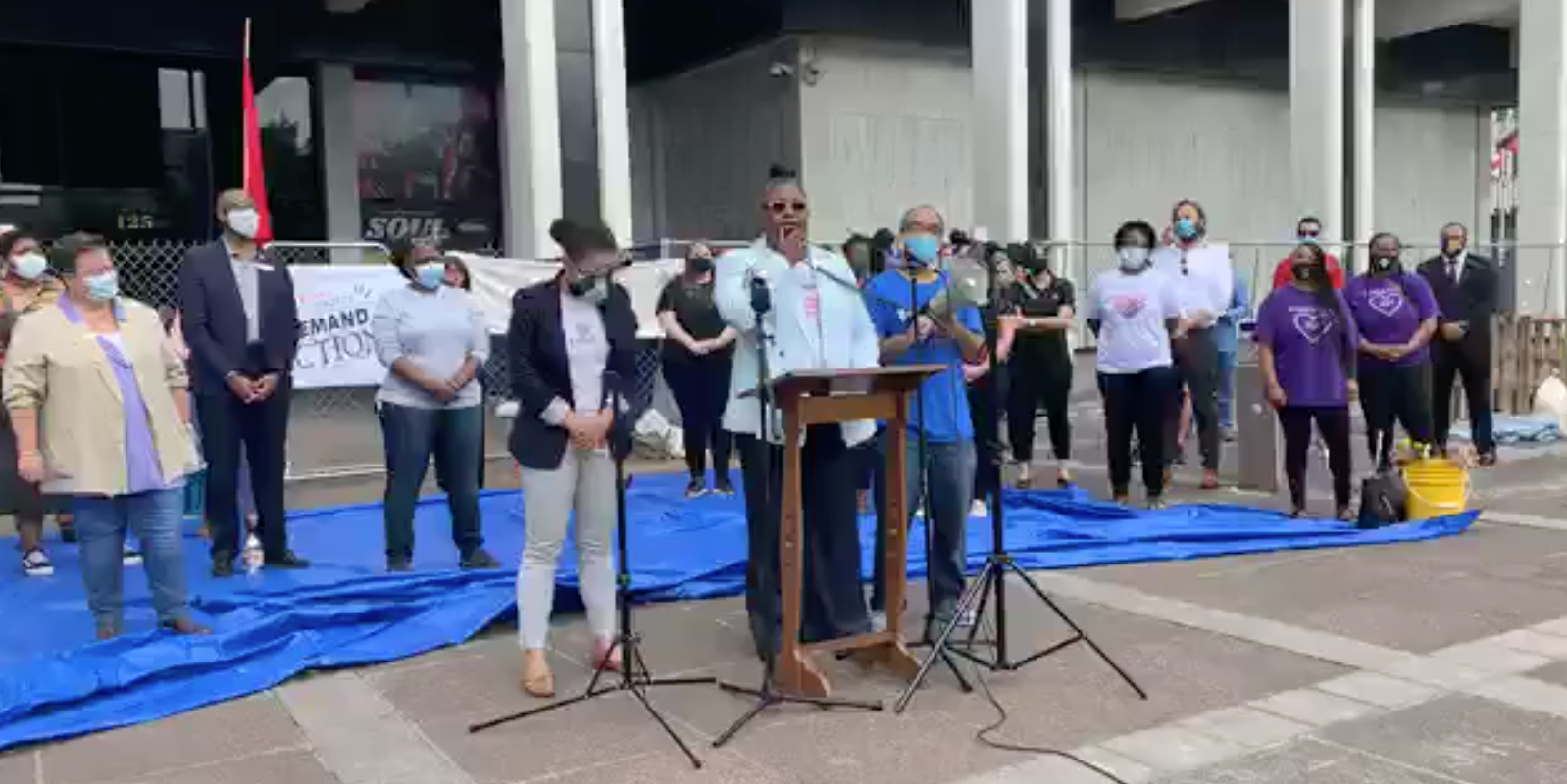Memphis Nonprofits Demand Action reported that most city and county leaders had yet to move on a host of urgently needed policy and practice reforms
Feature image from June 29 press conference at Memphis City Hall
MEMPHIS, TN – At a press conference held at Memphis City Hall today, a black-led coalition of nonprofit executive directors called out the city’s government leaders for failing to deliver tangible action in the effort to address systemic inequities and racial injustice. A coalition of over 150 nonprofit executives representing a range of nonprofit missions, Memphis Nonprofits Demand Action (MNDA), issued an open letter to officials earlier this month demanding local leaders adopt a host of solutions to the systemic drivers behind much of their work.
The group had given lawmakers until June 26 to commit to a series of action steps meant to address issues of police brutality, over-policing, poverty wages, subpar education, and systemic racism. On Monday, the nonprofit leaders reported that so far, they’d received little substantive response from Memphis officials.
“Some [city officials] have responded with the language of good intentions, but no one has hit the mark,” said Sarah Lockridge-Steckel, co-founder and CEO of The Collective Blueprint. Lockridge-Steckel, who also organized MNDA, added that the coalition was still awaiting a detailed response from Memphis’ City Council, the Shelby County Commission, Mayor Lee Harris, Police Director Michael Rallings, Sheriff Floyd Bonner and District Attorney Amy Weirich.
The group shared progress on their demands in three areas: Police brutality and police accountability, economic justice, and re-prioritizing the city’s budget. In terms of police reform, they noted the recent passage of 8 Can’t Wait and additional policies, but they demanded public transparency and greater accountability. The group asked that the Memphis City Council and the Memphis Police Department develop a process to show data on violations against these policies and actions taken by the department in response so that the public can be confident their concerns are heard.
On the issues of economic justice, they noted little progress on their demand to track wages and create a living wage pledge.
“Nonprofits can’t make up for our corporations paying our citizens poverty wages,” said Lockridge-Steckel.
The group also highlighted that the city of Memphis budget does not match community priorities. Crimes rates overall have declined, police spend a small fraction of time on violent crime, yet police budgets continue to increase. The group called on using the recent $9.8M DOJ grant as an opportunity to repurpose existing funds to non-policing tools like crisis technicians and community health solutions.
Just last week, Shelby County commissioners issued a resolution declaring racism a pandemic for its citizens and pledging a commitment to supporting policies that protect minorities. In addition, the resolution outlines the lawmakers’ pledge to “eradicate the effects of systemic racism affecting black people and other minorities in the community.” However, the nonprofit leaders said that it was time for the city and county to move beyond words and begin to adopt real policy and practice change.
“We asked our leaders to go beyond giving lip service to the deep, systemic challenges our city and county face,” said Cardell Orrin, Memphis Director of Stand for Children.
“Their words are not enough. Commitments to meet or form a task force are not enough. And expecting nonprofits and public goodwill to solve these challenges is not enough.”
“It is our responsibility as nonprofit leaders to hold our city and county officials accountability for protecting and serving its people,” said Whole Child Strategies Executive Director Natalie McKinney.
“We must make them commit to acting in favor of equity, in favor of justice, and in favor of transparency to everyone they hope to represent. We want them to act responsibly, to rely on accurate and transparent data and proven practices, but to also move swiftly and deliberately toward a new agenda for Memphis.”
The Memphis Nonprofits Demand Action coalitIon committed to monthly public accountability and follow-up on the demands outlined.
For the complete list of demands, read the coalition’s open letter to city officials.

